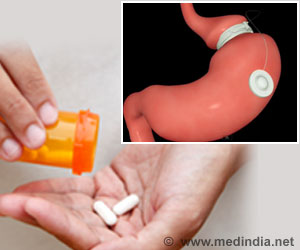New study reveals the best way to calculate weight regain after bariatric surgery to identify more specifically the patients at risk for recurrence or new onset of health problems.

"Clinicians and patients want to know the extent of weight regain following bariatric surgery and how it may affect their health. However, the lack of a standard measure of weight gain and variable follow-up has led to inconsistent results across studies," said lead author Wendy C. King, Ph.D., associate professor in Pitt Public Health's Department of Epidemiology. "Our study will help clinicians and patients understand the timeline, magnitude and impact of weight regain, as well as lead to further studies on how to best avoid and manage weight regain for better health outcomes."
King and her colleagues followed 1,406 adults who had undergone Roux-en-Y gastric bypass surgery, measuring their weight an average of 8.3 times over a period that averaged 6.6 years. The participants were enrolled in the National Institutes of Health-funded Longitudinal Assessment of Bariatric Surgery-2 (LABS-2), a prospective observational study of patients undergoing weight-loss surgery at one of 10 hospitals across the United States.
In addition to the percentage of weight lost that was regained, the team considered several other ways to characterize weight regain following maximum weight loss, including as a measure of body mass index, as percentage of pre-surgery weight, as percentage of lowest weight and number of kilograms regained. To assess health outcomes, they looked at progression of diabetes, high cholesterol and high blood pressure; and declines in physical and mental health-related quality of life and satisfaction with surgery.
When each of the ways to measure weight regain was evaluated with respect to each of the health outcomes, the researchers found that the percentage of maximum weight lost had the strongest associations with the various health outcomes.
To understand how to calculate weight regain this way, take someone who lost 150 pounds after bariatric surgery, then regained 28 pounds. That person regained 19 percent of their maximum weight lost. This level of weight regain was associated with a 51 percent higher risk of diabetes progression and a 28 percent higher risk of decline in physical health-related quality of life, indicating to a clinician this level of weight regain may lead to the progression or development of various health problems.
Advertisement
In the first year following maximum weight loss, 10 percent of participants experienced diabetes progression, 26 percent high cholesterol and 46 percent high blood pressure. A clinically important decline in physical and mental health-related quality of life was experienced by 20 and 28 percent of participants, respectively, and 12 percent experienced a decline in their satisfaction with their weight-loss surgery.
Advertisement
While the rate of weight regain decreased over time, the participants continued to regain weight throughout the LABS-2 follow-up, indicating that weight regain is something clinicians need to pay attention to over time, and not simply measure at one standard time post-surgery. Future work is needed to develop tools for patients and providers to more easily recognize and understand the impact of weight regain, the researchers noted. To help with this effort, they created an online supplement with figures showing weight regain and decline in clinical outcomes over time following maximum weight loss.
King noted that five years after reaching maximum weight loss, participants maintained, on average, 73 percent of their maximum weight loss. "So, despite weight regain, in general patients are much healthier having had surgery," she said.
Source-Eurekalert















